
Explore the Bible for yourself
The genius of Explore is that it is directly developed from the Bible. During the course, you will be guided on a partnership that will equip you with the skills needed to fruitfully journey through God’s Word. In this way, the Explore course will empower you to embark on a thousand more journeys through the Bible as you grow deeper into God’s Word and then go wider into His world.
Gain a deeper understanding of God and His plan of salvation for the world.
Grow in your understanding of both Systematic & Biblical Theology of the Bible.
Grow personally and live a more effective Christian life in your home, church and community.
Develop your skills as a leader so you can serve more effectively in your local church.
HOW IT WORKS
Study on your own, at your own pace, or work in a small group with others. Explore has been designed for people from all walks of life and church backgrounds to have access to world-class Biblical Theological education. Throughout the course, you’ll find that the focus is intentionally directed on you exploring God’s Word for yourself, with the course material there to guide you.
On enrolment, you will receive a workbook containing the study material for the module you are doing. Apart from the workbook and a Bible, you do not need any other books.
Examinations are not compulsory, although we recommend them as an aid for serious study. Successful completion of the examinations of all 8 modules will result in the awarding of the Explore Certificate at our annual George Whitefield College Graduation ceremony.
PLEASE NOTE
This study option is not accredited and does not lead to a qualification registered on the National Qualifications Framework.
LENGTH OF COURSE
Each of Explore’s 8 modules are designed to take 12 weeks. Most students complete the course in 2.5 years, although it is possible to complete in 2 years. We suggest that you set aside 5 hours per week for devoted study. If this is too much, you may want to spread the module over two terms. There is no time limit set in which you must complete each module. You may begin the first module at any time, but there are fixed examination periods for all modules held annually in February, May, August, and November.
WHO CAN REGISTER?
Anyone! Explore is an affordable self-study programme. Whilst there is a fair amount of reading involved, there are no academic entrance requirements and the examinations are optional.
HOW MUCH DOES IT COST?
Please contact lmeyer@gwc.ac.za to obtain the current fee structure for your country.
COURSE MODULES
Explore begins with a Bible Overview (Module 1), then moves on to study the One whom the Bible is all about, Jesus (Module 2). We then move to the birth and growth of the church and the work of the Apostles (Module 3), then study more about the God who has given us the Bible, who sent Jesus and who created the way of salvation (Module 4). The first books of the Bible, the Books of Moses, are explored in depth next (Module 5), followed by the Prophets (Module 6), and then we take a closer look at a theology of salvation, looking at how the theme of God saving people runs through the entire Bible (Module 7). Finally, we conclude by exploring what God’s timeless Word has to say about how we are to live today (Module 8).
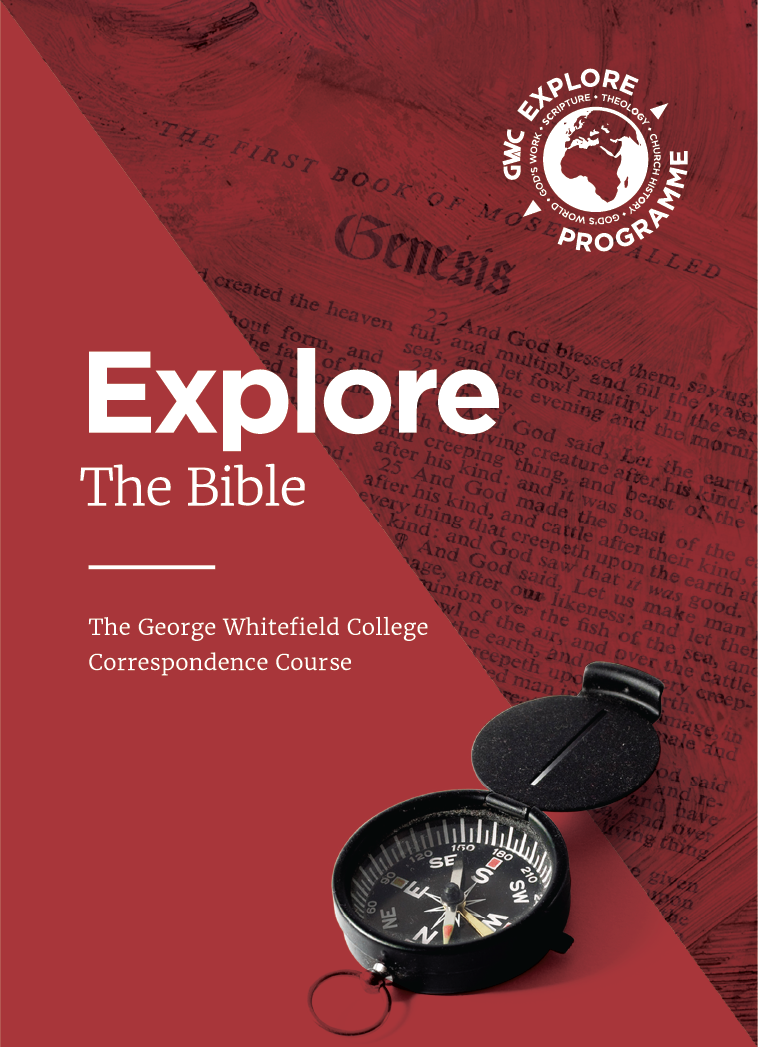
UNIT 1
Explore the Bible
The Bible is the most controversial book in the world. Christians believe it is a message from God.
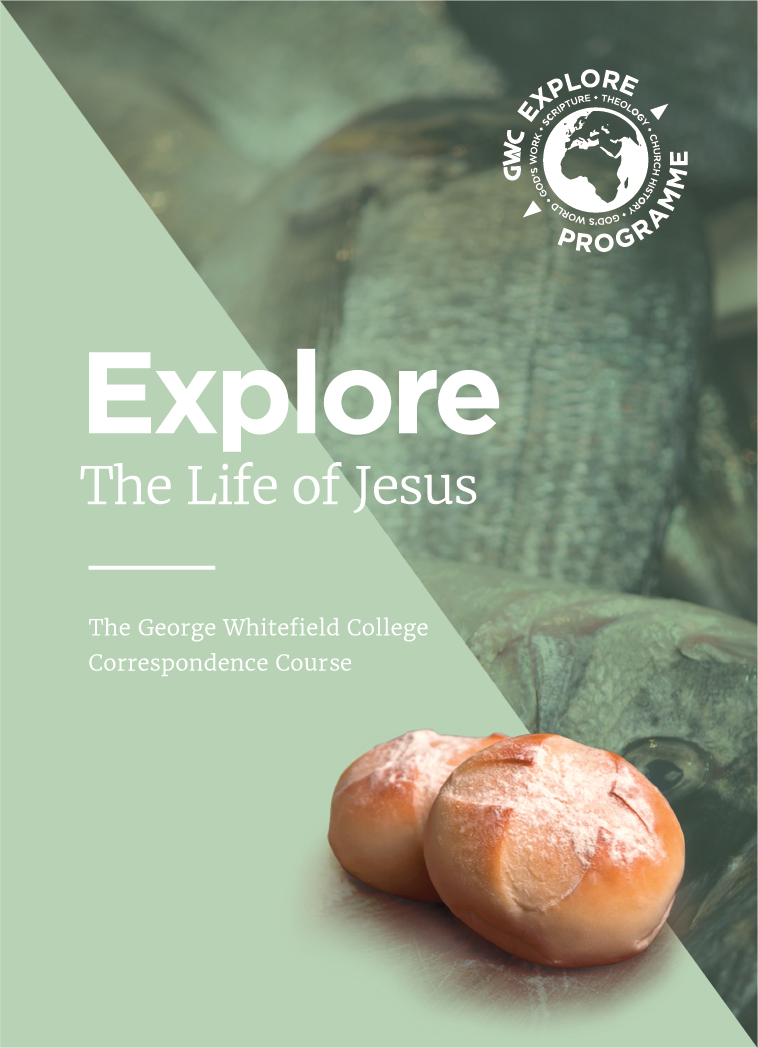
UNIT 2
Explore the Life of Jesus
Many great leaders have influenced the world, but none more than Jesus. How did He do it?
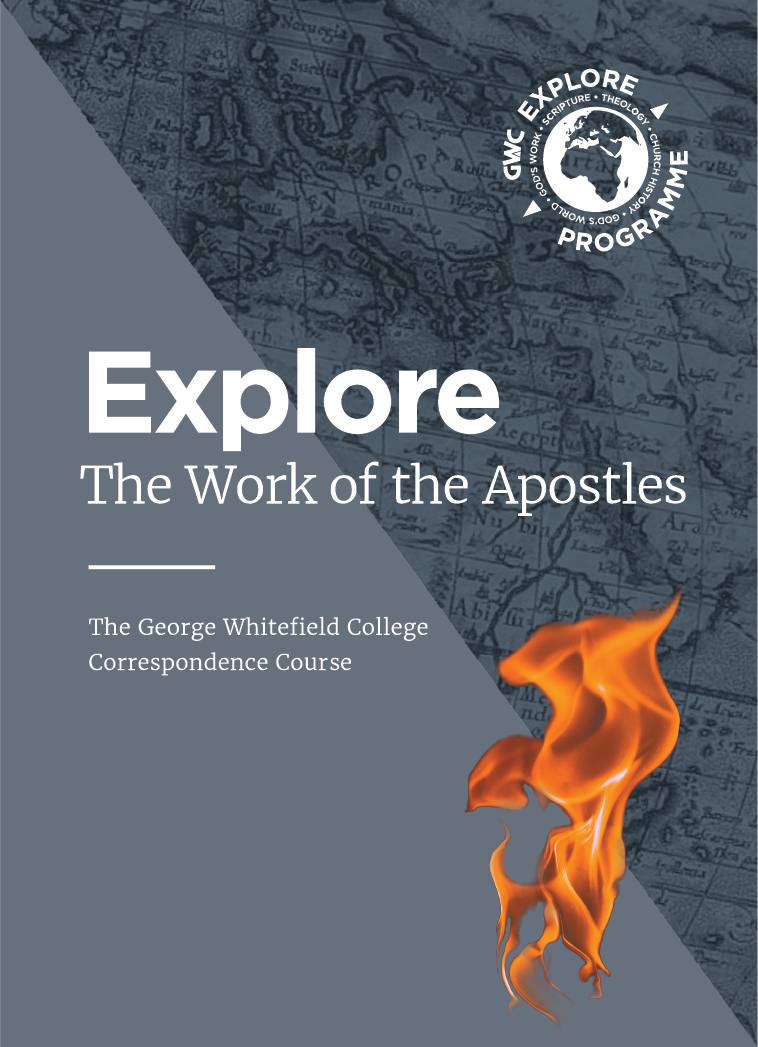
UNIT 3
Explore the Work of the Apostles
The work of the apostles is the bridge between Jesus’ earthly work, salvation, and us today.
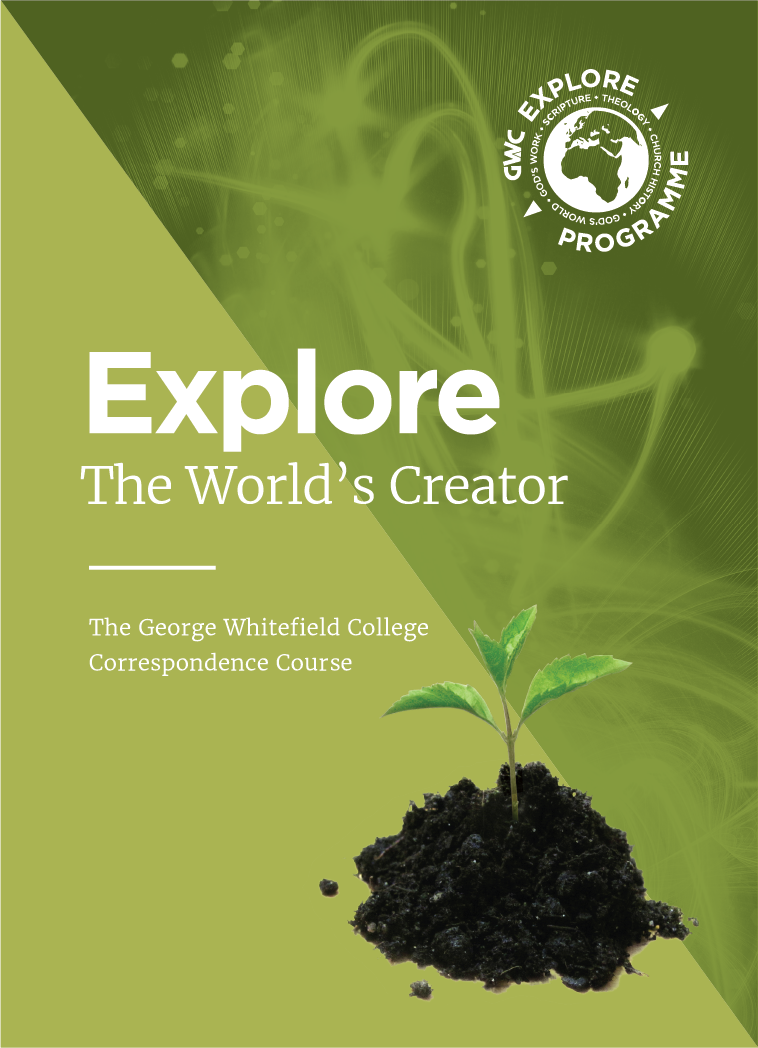
UNIT 4
Explore the World’s Creator
It may seem strange to wish to explore God. Surely God cannot be put in a test tube or on a work bench and examined.
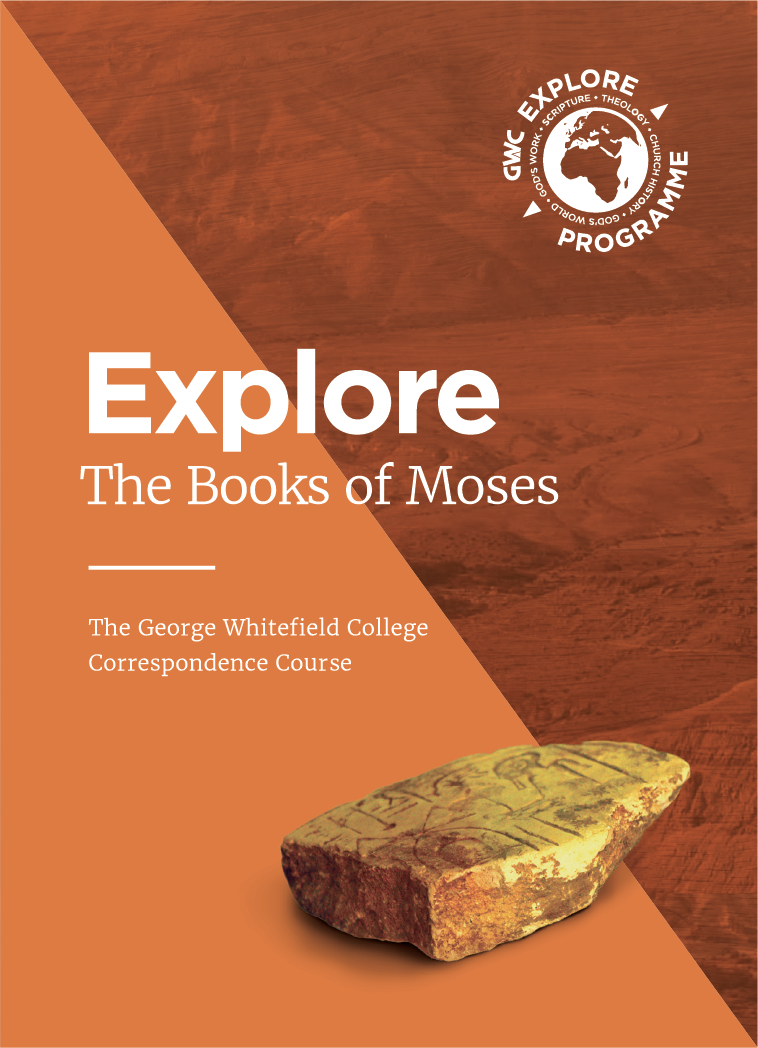
UNIT 5
Explore the Books of Moses
Starting at the beginning has always been—and still is—a good idea.
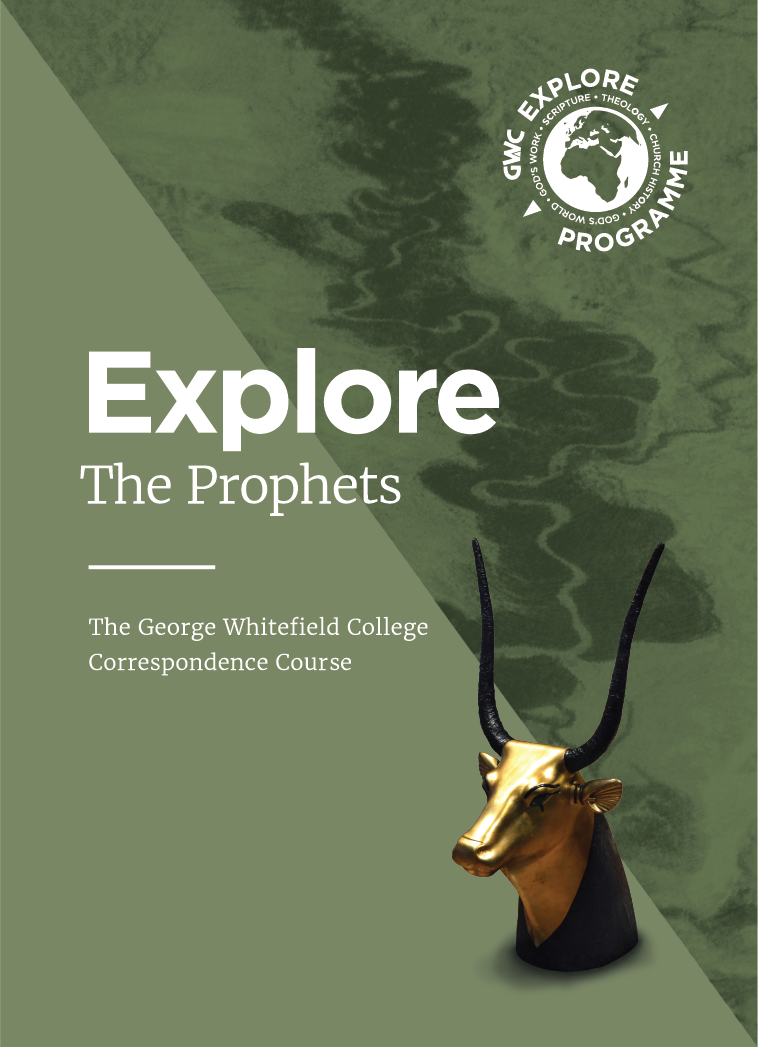
UNIT 6
Explore the Prophets
The Old Testament books that we call historical also fall under the title of prophecy.
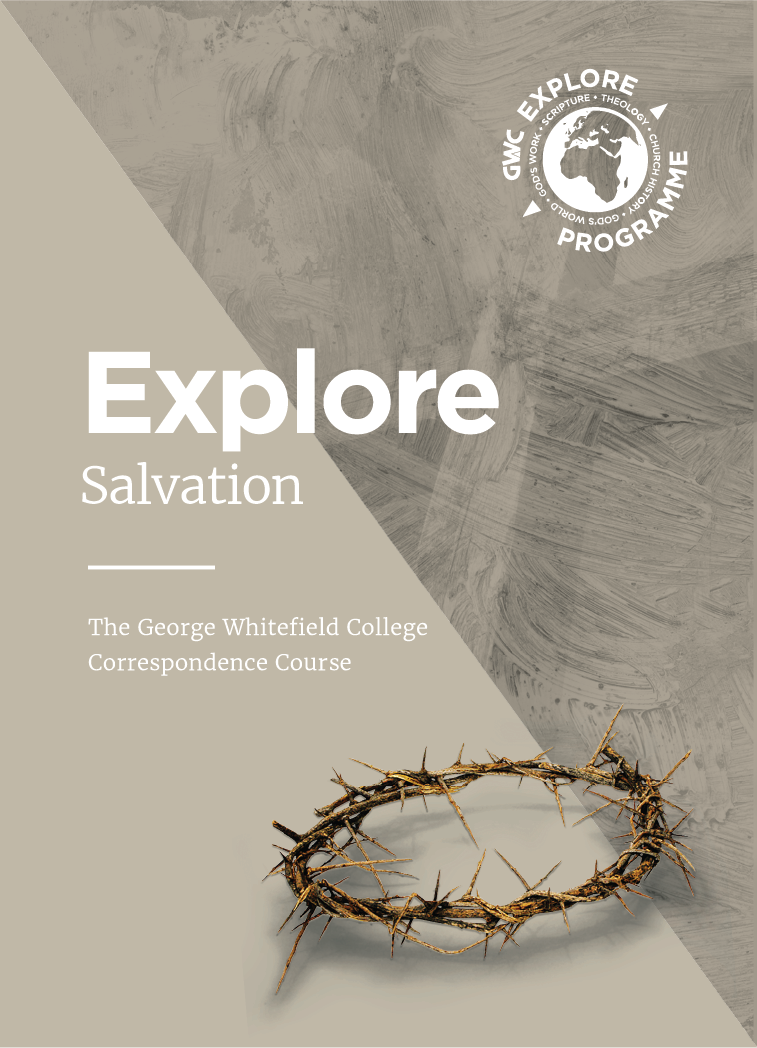
UNIT 7
Explore Salvation
In this module of Explore we’ll look at the story of salvation as we find it in the Bible.
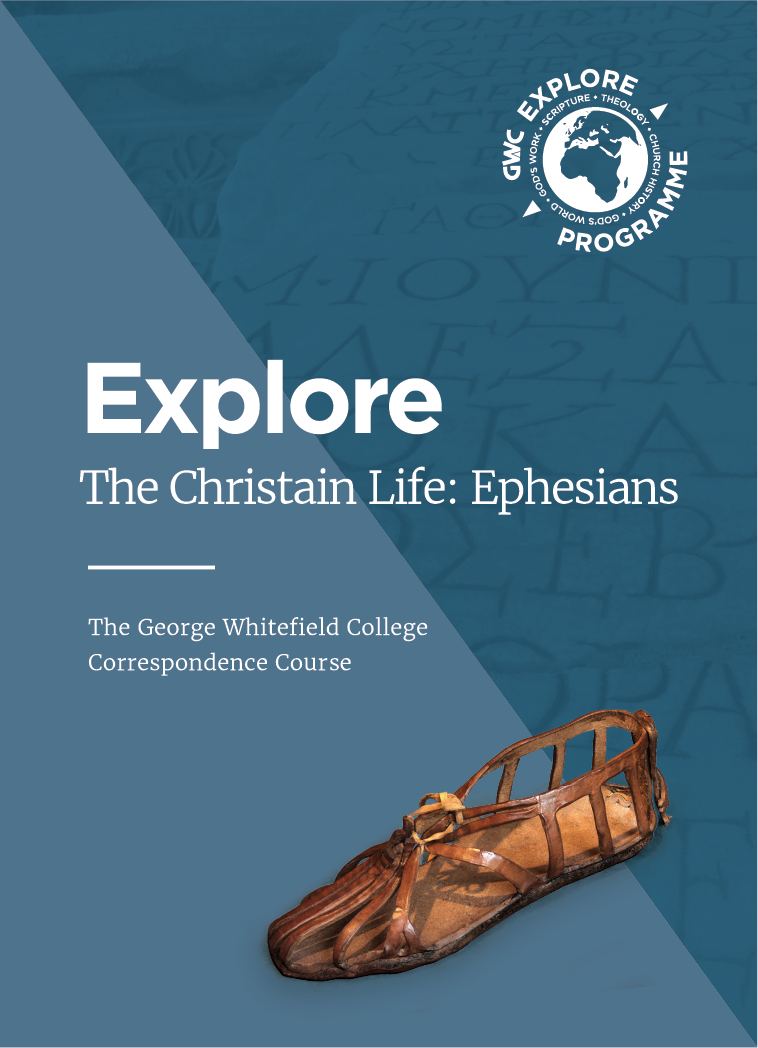
UNIT 8
Explore the Christian Life: Ephesians
Our main focus will be on the book of Ephesians, but we will also look at some issues of Christian doctrine.
Unit 1 – Explore the Bible
The Bible is the most controversial book in the world. Christians believe it is a message from God. It is where they find out what God is like, why he made the world, what his plans are, how we can know him and how he wants us to live. But many people dislike the Bible’s message and try to prove that it is just another book of human opinions. They feel free to have their own opinions about God, or not to believe him at all. They say that everyone can have their own beliefs and live the way they think best.
Course Contents
Introduction
Unit 1: The Bible
- What is the Bible and why should I care about it?
- Background info about the Bible: its history and structure
- How should we approach the Bible?
Unit 2: Creation and Fall
- What is the Bible about? 1
- The meaning of Genesis 1 to 11
- The meaning of the creation story
- Who was Adam?
- What does God do about Adam and Eve’s rebellion?
- Why was Adam’s sin so serious?
- The meaning of the story of Noah
- Why did God confuse the people’s language?
- To what point does Genesis 1 to 11 lead us?
Unit 3: Promise
- Abraham’s place in the plan of God
- The promise God made to Abraham
- How did the promise become a covenant?
- The sign of the covenant God made with Abraham
- Abraham’s response to God’s promise
- How did God keep His promise to Abraham?
- Why is Jacob so important?
- How did Israel end up in Egypt?
Unit 4: Nationhood
- Moses and the plan of God
- Redemption for God’s people
- When did Israel actually become a nation?
- Atonement
- Why did it take forty years for the Israelites to reach Canaan?
- How did the Israelites take possession of their new land?
Unit 5: The kingdom established
- The message of the book of Judges
- The transition to kingdom
- The book of Ruth
- The reign of Solomon
- Israel’s holy places
- The decline and fall of the kingdom after Solomon
Unit 6: The kingdom in decline
- The role of the priest, prophet and sage in the period after David
- Elijah
- Amos
- Isaiah
- Other nations
Unit 7: Exile and restoration
- What was Judah’s response to Isaiah’s warnings?
- Jeremiah’s message
- Ezekiel’s role
- Did the Israelites ever come home from Babylon?
- Daniel’s place in God’s unfolding plan
Unit 8: Messiah
- How did the hope for a Messiah develop?
- How much do we know about Jesus?
- The major theme of Matthew
- The message of the other Gospels
Unit 9: Church
- What is the church?
- Who wrote Acts?
- The most important characters in Acts
- The task Jesus gave His apostles
- The message preached by the first Christians
- What was the early church like?
- Opposition in the early church
- Where did Paul minister and what were the big issues he encountered?
- The great truth Luke wants to establish through the ministry of Paul
- Culture and the Christian
Unit 10: Christianity
- Is there any significance in the order of the books in the New Testament?
- The main subjects dealt with in Paul’s letters
- The problem between Jews and Gentiles
- Difficulties in the early Christian churches
- Paul’s authority disputed in the early church
- Problems over the lordship of Christ in the early church
- Paul’s focus on encouragement
- Letters written to Christian ministers: Timothy and Titus
- Other New Testament letters
- The Book of Revelation
- Summary of the whole Bible: It’s all about Jesus!

Unit 2 – Explore the Life of Jesus
Many great leaders have influenced the world, but none more than Jesus. How did He do it? He was a tradesman with no wealth, from an unknown family, with few connections. From the time He made the momentous announcement of the kingdom of God, He was given only three years to accomplish what He had to do. The belief of His followers—that He is Lord of the Universe and the Saviour of the world—spread through the ancient civilisation of Greece and Rome. It transformed Europe, much of Asia and North Africa. Two thousand years later there is no country in which the influence of Jesus is not felt. In fact, there are more people alive today who call themselves Christian than in all other centuries put together. How can anyone explain this? How did it come about? Explore His life and teaching and you will begin to understand.
Course Contents
Introduction
How to get the most from this module:
Unit 1: Portraits of Jesus
- Do you remember what we discussed in Module 1?
- Where does our knowledge about the life of Jesus come from?
- Writing about Jesus by people who didn’t believe in Him
- The Gospels of Matthew, Mark, Luke and John
Unit 2: A king is born
- The stories of Jesus’ birth
- Jesus’ ancestors
- Jesus’ conception
- Jesus’ mission
- When was Jesus born?
- Why was the King born in such poverty?
Unit 3: The king is commissioned
- The years before Jesus’ public ministry
- John the Baptist
- Jesus’ baptism
- Jesus’ temptations in the wilderness
- Jesus begins His work
Unit 4: The kingdom is announced
- Galilee: the place where Jesus first talked about the kingdom
- What led Jesus to begin a new ministry in Galilee?
- Jesus’ message
- How could Jesus say that the kingdom had come; what did He mean?
- Jesus and the demons
- Absence of political expression in the kingdom of God
- How did Jesus say the kingdom of God would come?
Unit 5: The friend of sinners
- How did Jesus call His followers to Him?
- What first impression did Jesus make on ordinary people?
- Notable characteristics of Jesus
- The religious leaders
- How did Jesus relate to women?
- Jesus’ attitude to children
- Jesus’ priority in ministry
Unit 6: Who is this man?
- Why didn’t Jesus openly declare Himself the king?
- How did Peter come to see that Jesus was the Messiah?
- How did Jesus establish the kingdom of God?
- Did Jesus say anything more about Himself than that He was the Messiah?
Unit 7: Setting His face towards Jerusalem
- The areas in which Jesus carried out His ministry
- Why and when did Jesus leave Galilee?
- Jesus in Jerusalem
- Jesus’ view of His approaching death
Unit 8: The last week
- Jesus emerges from hiding
- The fateful journey to Jerusalem
- Jesus’ triumphal entry into Jerusalem
- Jesus’ last week in Jerusalem
- How did Jesus say the future would be?
Unit 9: The king is rejected
- Jesus’ ‘last’ night
- Jesus’ arrest
- Jesus’ trial
- Why was Pontius Pilate involved?
- Jesus’ execution
- The significance of the events surrounding Jesus’ death
Unit 10: The King Rises
- Did Jesus really come alive again?
- Evidence of the resurrection
- Events after Jesus’ death, as described in the oldest Gospel
- Why does Mark’s account break off without describing Jesus’ appearances to His followers?
- What does Matthew add to Mark’s account?
- What does Luke add to what we have learnt in Mark and Matthew?
- What does John tell us happened on the first Easter Day?
- What is the significance of Jesus’ life and ministry?

Unit 3 – Explore the Work of the Apostles
The work of the apostles is the bridge between Jesus’ earthly work—the salvation for human beings that He achieved through His life, death and resurrection—and us today. Having written the story of Jesus, Luke saw that it could not and did not end when He ascended into heaven. God’s work moved into a new phase.
The apostles began telling people about Jesus and the salvation that is possible through Him. But even the apostolic work had distinct phases. Luke was personally involved in the vital stage of the apostolic mission of bringing the message of salvation beyond the world of the Jews to the nations of the world. Explore the Work of the Apostles works through Luke’s Acts of the Apostles, picking up some of the other New Testament apostolic writings along the way.
Course Contents
Introduction
Unit 1: Witnesses
- Revision of the resurrection
- The apostles’ recovery
- With what understanding of the future did the apostles start their mission?
- What did the apostles do once they understood their new role?
- How did God empower the first Christians for their work of witness?
- The importance of the Holy Spirit in the Christian life
Unit 2: The gospel
- How did God launch the new Christian movement?
- Peter’s message
- What does ‘gospel’ mean?
- The people’s response to Peter’s message
- Other gospel sermons
Unit 3: Community
- The community that resulted from the preaching of the gospel
- Why does Luke describe the early community in such detail?
- The attitude of outsiders to the first church
- Persecution of the first Christians
- What other difficulties did the first church face?
Unit 4: Crossing the culture barrier
- The different groups of Jews
- The gospel among Greek-speaking Jews in Jerusalem
- The effect of the first great persecution of Christians
- Christianity spreads to Samaria
- How did the gospel first come to Africa?
Unit 5: The big breakthrough
- Saul of Tarsus becomes a Christian
- Preaching Christ to the Gentiles
- Has Jesus really changed the law of Moses?
- How was Peter’s action received by the church?
- The first large concentration of Gentile Christians
- The next major persecution against the church in Jerusalem
Unit 6: World mission
- Where did the policy of sending missionaries to other countries begin?
- The first port of call as Saul and Barnabas set out
- Paul’s missionary strategy
- Organisation of the new churches
- The end of the first missionary expedition
- A threat to missionary work to the Gentiles
Unit 7: Paul in Europe
- Paul’s travelling companions
- Philippi
- Thessalonica and Berea
- Athens
- Corinth
- The timeline of Paul’s ministry
Unit 8: Strategic location in Asia
- Other early gospel preachers besides Paul
- The evangelism of the province of Asia
- What place did miracles have in Paul’s ministry?
- The end of Paul’s ministry in Ephesus
- Luke rejoins Paul’s party
- The book of Romans
- Paul’s model of church care
Unit 9: Paul on trial
- Paul persists in his journey to Jerusalem
- The attitude to Paul among the Christians in Jerusalem
- Paul in Roman custody
- Was Paul right to have gone to Jerusalem?
- Paul in the custody of Felix
- While Paul was in prison
- What did Paul say to King Herod Agrippa?
- The significance of all these hearings
Unit 10: Paul in Rome, the heart of the empire
- Paul’s journey to Rome
- Paul speaks to the Jews in Rome
- The response of the Roman Jews
- Paul’s letters
- What happened to Paul after his imprisonment in Rome?

Unit 4 – Explore the World’s Creator
It may seem strange to wish to explore God. Surely God cannot be put in a test tube or on a work bench and examined. He is far beyond our reach. However, as we shall see, God has revealed Himself in a personal way and therefore makes it possible for us to explore Him—explore what He has disclosed of Himself—in the same way as two people might seek to get to know one another (although God already knows us perfectly). Such exploration is essential to all friendships, and if we would know God, we must seek to know Him as He has chosen to make Himself known.
This module will lead you further than knowledge about God. We’ll also consider the relationships between God and His creation, God and human beings, God and the spirits, God and society, God and history, God and the Lord Jesus and God and the Holy Spirit.
Pray that your exploration will lead you to a deeper and more intimate relationship with Him. There is no greater subject for our thoughts and explorations than God Himself. ‘Now this is eternal life: that they know you, the only true God, and Jesus Christ, whom you have sent’ (John 17:3).
Course Contents
Introduction
Unit 1: The Revealer
- Many different religions but only one true God
- How God reveals Himself
- Does God speak directly to us in our hearts?
- What part does the Holy Spirit play in revealing God to us?
- Why does God make Himself known?
Unit 2: The Creator
- Creation: A good place to start
- What do we learn about God from His creation of the universe?
- Different beliefs about creation
- God’s rights as creator of the universe
Unit 3: The Sustainer and Provider
- God’s relationship to the physical world
- How do we account for science and the laws of nature if God governs all things constantly?
- The extent of God’s governance of the world
- God’s governance over history
- God’s plan throughout history
- How should knowing that God is governing and guiding all things affect us?
Unit 4: The one true God
- Why do we insist that there is only one God?
- Other religions and gods
- Should we not be more tolerant of other religions and gods now that Jesus has come?
- Knowing that there is only one true God affects our thinking and living
- Should Christians fight with those who do not believe in the true God?
- Does the existence of the devil compromise the supremacy of God?
Unit 5: The great king
- God as a king
- How did God come to be seen as Israel’s king?
- How does God intend to be His people’s king in the future?
Unit 6: The Holy One
- A brief introduction to systematic theology: What is God like?
- What is holiness?
- God’s holiness
- What does it mean when God’s people are said to be holy?
- How was atonement finally made?
- Living a holy life
Unit 7: The God of justice and righteousness
- God’s justice
- God’s righteousness
- A closer look: What is righteousness?
- What does it mean to say that God is righteous?
- God’s desire for justice and righteousness in the world today
- The Christian response to injustice and unrighteousness in the world
Unit 8: The God of love
- God’s attitude to His creation
- God’s love for people
- God’s love declared in the new covenant
- How does God wish us to respond to His love?
Unit 9: Father, Son and Holy Spirit
- The Father is God
- Jesus is God
- The Holy Spirit is God
- How to make sense of the Trinity
Unit 10: Worshipping God
- What is worship?
- How we should worship
- The relationship between church services and worship
- Knowing God affects how we worship Him

Unit 5 – Explore the Books of Moses
Starting at the beginning has always been—and still is—a good idea. And that is no less true for the Bible! And yet, sadly, many Christians are in the dark when it comes to understanding the Old Testament, especially some of the earlier books. We’ve probably all had the experience of starting a Bible reading plan in Genesis only to run out of steam in Leviticus and go back to the safer ground of a Gospel or one of Paul’s letters.
Of course, it is quite natural that those who have found new meaning in life because of Jesus will want to know more about His life and teachings. But you can’t listen to Jesus for long without realising that He took that part of the Bible that we call the Old Testament very seriously. In fact, He seemed to explain His identity and mission in the light of these scriptures. What this shows is that, strange though they may seem to us, the Old Testament writings matter.
In Explore the Books of Moses we begin our journey through the Old Testament. These books form the basis of all that follows in the Bible and are therefore vital if we are to understand the mission of Jesus and the message of the Bible as a whole.
The material in this book has been designed to help you explore and understand the first five books of the Old Testament or Torah, as the Hebrews called them. It is our prayer that in doing so you will grow to love the Old Testament and Jesus more.
Course Contents
Introduction
Unit 1: The Books of Moses
- What is the Torah?
- The Law of God
- The period of history covered by the Torah
- The theme of the Torah
Unit 2: In the Beginning
- How did the universe begin?
- What was the universe like?
- Humankind’s place within the universe
- God’s purpose for creation
- Life in God’s world
- The beginning and the gospel
Unit 3: A World Gone Wrong!
- What is evil?
- How did evil enter the world?
- What is sin?
- The consequences of human rebellion
- Life in God’s world
- The basis of the gospel in Genesis 3 to 11
Unit 4: A Fresh Start
- A fresh start with the birth of Seth
- A fresh start with Noah
- A fresh start with the call of Abram
- Blessing in the patriarchal narratives
- The promise and the gospel
Unit 5: The Exodus
- Introduction to Exodus
- Participants in the events
- God’s response to His people’s slavery in Egypt
- The elements of God’s character that come into focus
- The manner in which God rescued Israel from Egypt
- How should we interpret the Exodus?
- Israel’s response to God’s rescue
Unit 6: The Covenant at Sinai
- The covenant at Sinai
- Why was Israel’s experience at Sinai visible and audible?
- The terms of God’s covenant with Israel
- The covenant and fellowship with God
- The symbol of God’s presence with Israel
- Did Israel stick to the terms of the covenant?
- The consequences of Israel’s sin
- God renews the covenant with Israel
Unit 7: Israel’s Calling
- The link between Exodus and Leviticus
- The content of Leviticus
- The sacrificial system
- How was Israel instructed in the meaning of holiness?
- The significance of the Israelite assemblies/feasts
Unit 8: In The Wilderness
- God’s ideal for Israel
- How did Israel conform to the Ideal?
- The Lord’s response to Israel’s unfaithfulness
- The leadership ideal for Israel
Unit 9: Hear, O Israel!
- Introduction to Deuteronomy
- The structure of the book
- Key themes of Deuteronomy
Unit 10: Moses Wrote about Me
- Jesus and the Torah (Pentateuch)
- The beginning and the gospel
- Genesis 3 to 11 and the gospel
- The promise and the gospel
- The Exodus and the gospel
- The Law given at Sinai and the gospel

Unit 6 – Explore the Prophets
The Old Testament books that we call historical also fall under the title of prophecy. This is because, as we shall see, these books (Joshua to Kings) don’t just record any history. They record the special history of God’s people, Israel. This history was shaped and determined by the Word of the Lord. The most important people in this history were not Israel’s kings, but the prophets, in whose mouth ‘the word of the Lord is the truth’ (1 Kings 17:24).
We hope that you will enjoy and learn from our journey through the books of the Prophets and that by the end of the module, a doorway for further study of these key Old Testament books will have opened.
Course Contents
Introduction
Unit 1: Introducing the Prophets
- Two brief reminders
- Who were the prophets?
- The titles by which the prophets were known
- The role the prophets played within Israel
- Were there prophets outside of Israel?
- How true prophets were recognised
- The main features of the prophetic message
Unit 2: A Question of History
- The Old Testament (OT) as history
- An overview of Israel’s story
- The shape of the former prophets’ story
Unit 3: Into the Good Land
- Israel’s attitude to the Promised Land
- Israel’s conquest of the land through Holy War
- God’s purpose for Israel, expressed in the Promised Land
Unit 4: God’s presence, God’s rule
- Samuel’s role in Israel
- Why was the Ark of the Covenant taken in battle?
- Why did Israel ask for a King?
- Saul’s kingship
- David’s kingship
- The symbol of God’s presence in Israel
Unit 5: Dominion, division and decline
- The kingdom of Solomon
- After Solomon: Division in the Kingdom of Israel
- The story of Israel and Judah
- The significance of Elijah and Elisha
Unit 6: The Lord is King
- The location and timeframe of Isaiah’s prophecy
- Subdividing the book of Isaiah
- The key themes in Isaiah
Unit 7: A Question of History
- Who was Jeremiah?
- Jeremiah’s message
- The major themes of the book of Jeremiah
Unit 8: Hope for the Hopeless
- The location and timeframe of Ezekiel’s prophecy
- Ezekiel’s role and message
- Subdividing the book of Ezekiel
- Why was Jerusalem overthrown?
- The significance of Ezekiel’s oracles against the nations
- What will become of God’s great purpose?
Unit 9: The Twelve Minor Prophets
- The location and timeframe of Hosea’s prophecy
- The structure of the book of Hosea
- More about the marriage metaphor in Hosea
- The message of Hosea
- The genre of the book of Jonah
- The missiological dimension of Jonah
- Key lesson taught in the book of Jonah
- Israel’s return and fulfilment of the promise of restoration
Unit 10: All that the Prophets have Spoken
- The goal of Israelite history
- Jesus brings restoration
- Jesus fulfils all that the prophets have spoken
- In what way was Jesus a prophet?
- The relationship between the gospel and prophecy

Unit 7 – Explore Salvation
In this module of Explore we’ll look at the story of salvation as we find it in the Bible. Salvation is the central message of Scripture. God spent at least 4000 years preparing the way—laying the foundations—before He sent His Son to save us. Therefore, we start by looking at the promises and pictures of salvation in the Old Testament. Without them, our understanding of salvation is impoverished and often skewed.
In this module, the study of salvation will include the doctrine of the person and work of Christ, as well as the story of salvation in Old and New Testaments, our need of salvation, and the fulfilment of the Great Commission—bringing salvation to the world.
Course Contents
Introduction
Unit 1: The Story of Salvation
- Where do we find salvation?
- An overview: The story of God’s salvation plan
- How you can be part of the story
Unit 2: The Need for Salvation
- The doctrine of original sin
- Four observations regarding sin
- When does God step in?
- Old Testament salvation
- New Testament salvation
Unit 3: The Promise of Salvation
- The protoevangelium
- The Abrahamic Covenant
- The Mosaic Covenant
- The Davidic Covenant
- The New Covenant
Unit 4: Pictures of Salvation
- Adam and Eve: Covering and substitution for sin
- The sacrifice of Isaac: The Lord will provide a sacrifice
- The Exodus: God’s rescue of His people
- The Levitical Sacrifices
- The Suffering Servant
Unit 5: The Saviour
- The birth narratives and what they tell us about the Saviour
- Jesus’ nature: Fully human and fully God
- Christ’s deity, according to the Chalcedonian Definition of the Faith
Unit 6: The Cross
- Jesus’ ministry leading up to the cross
- What did Jesus say about the cross?
- Notes about the cross from Acts
- Notes about the cross from the Epistles
Unit 7: Understanding the Cross
- Sacrifice
- Victory
- Justice
- Healing
Unit 8: The Resurrection
- Jesus’ appearances after the crucifixion
- The evidence for the resurrection
- Jesus’ resurrected body
- The meaning of the resurrection
Unit 9: Ascension and Pentecost
- The Ascension: when?
- The Ascension: why?
- Jesus receives the Holy Spirit from the Father
- Pentecost: Why did Jesus send the Holy Spirit?
- Pentecost: A reversal of Babel
Unit 10: He reigns on high
- The Great Commission
- He reigns!
- Fulfilment of the Abrahamic promise
- When will Jesus’ Messianic reign end?
- Jesus will come again

Unit 8 – Explore the Christian Life: Ephesians
Our main focus will be on the book of Ephesians, but we will also look at some issues of Christian doctrine. A doctrine is a belief, such as election, predestination or regeneration. You’ll see in Unit 4 that regeneration refers to God’s work of taking spiritually dead rebels and giving them eternal life. Christians often refer to the doctrine of regeneration as being ‘born again’.
In this module, we seek to explore what it means to be a Christian. We hope that by combining the study of Ephesians with doctrinal topics, you’ll gain practical insight for your own Christian life.
Course Contents
Introduction
Unit 1: About Ephesians
- What kind of book is Ephesians?
- The author of Ephesians—an apostle of Christ Jesus
- The readers of Ephesians
- What makes the book of Ephesians unique?
- The man who carried the letter—Tychicus
Unit 2: Blessings
- God’s blessings in the book of Ephesians
- Election and predestination
- Redemption and the forgiveness of sins
- Wisdom and understanding
- Summary of the big ideas in Ephesians 1:3-10
Unit 3: Our inheritance
- What is the inheritance?
- God’s sovereignty at work
- Who are the heirs?
- Paul’s prayer
Unit 4: Salvation by grace
- Our position before we trusted Christ
- God’s intervention
- God’s grace
- From death to life
- Excursus: Regeneration, or being born again
- Christian identity
Unit 5: A new world
- What we were: people without citizenship
- What we are now
- How it came about
- The new people of God
Unit 6: Paul’s special ministry
- Paul’s imprisonment in Rome
- How does Paul understand his ministry?
- The mystery that Paul has been commissioned to proclaim
- Paul’s response to God’s plan and his part in it
Unit 7: The church
- What Paul teaches in Ephesians about the church
- The basis of the unity of the body of Christ
- What Paul teaches in Ephesians about gifts and ministries
- Excursus: The doctrine of church and the Christian life
Unit 8: A new person
- The root cause of immoral lifestyle
- Where do we learn how to live in a good way?
- Cultivating love
- Sexual immorality and the Christian
- How children of God should think of themselves
- Excursus: The doctrine of sanctification
Unit 9: Walking in wisdom
- Christian wisdom in everyday living
- Instructions for husbands and wives
- Instructions to parents and children
- Instructions for the workplace
Unit 10: Spiritual warfare
- Active engagement in Christian survival tactics
- Stand when the days are evil
- Put on the full armour of God

